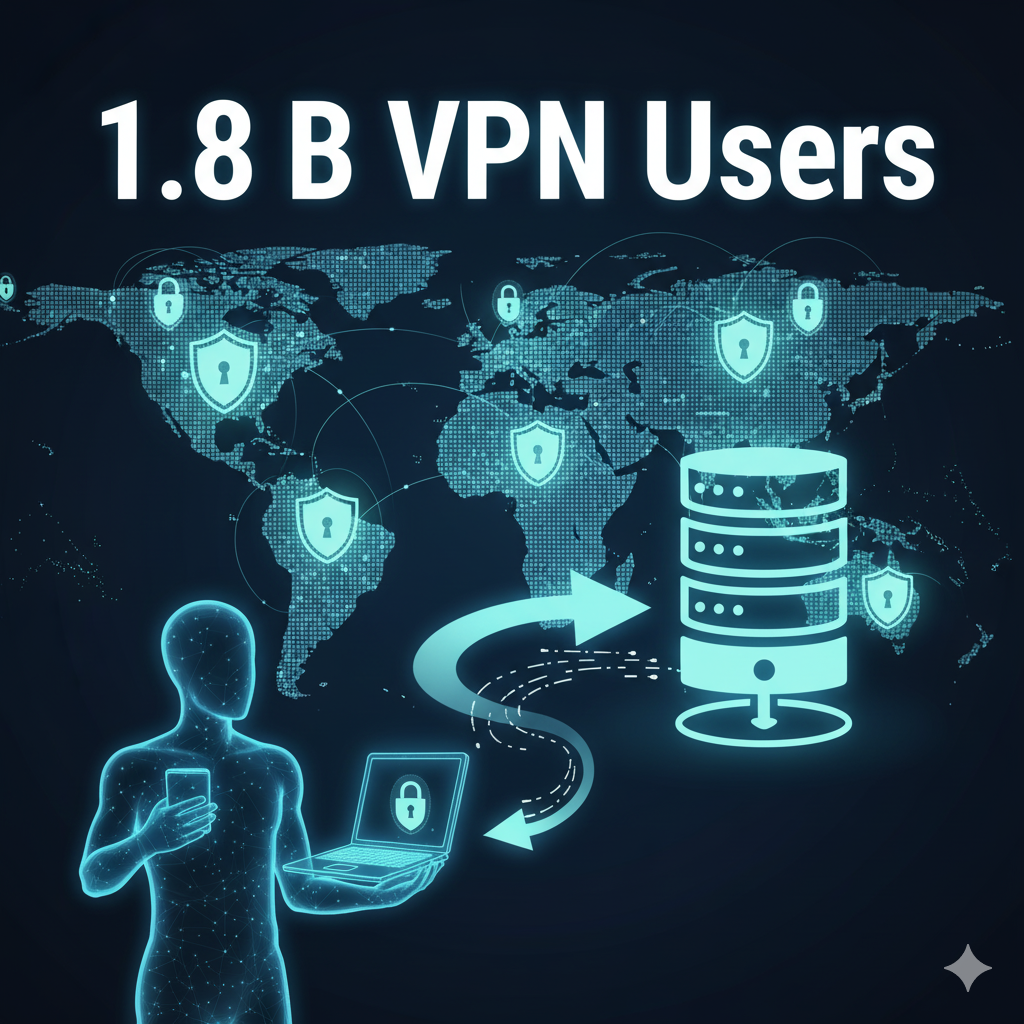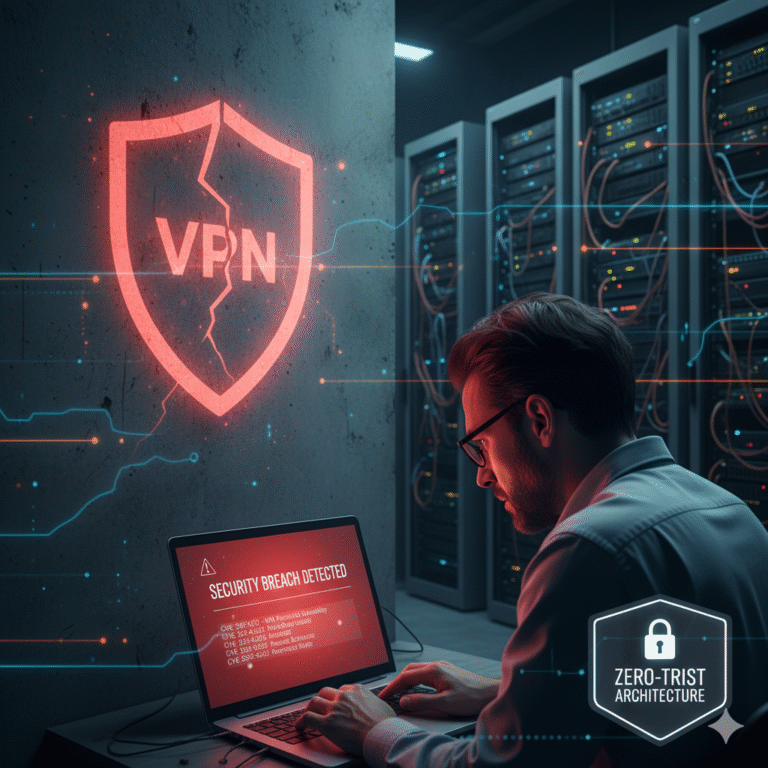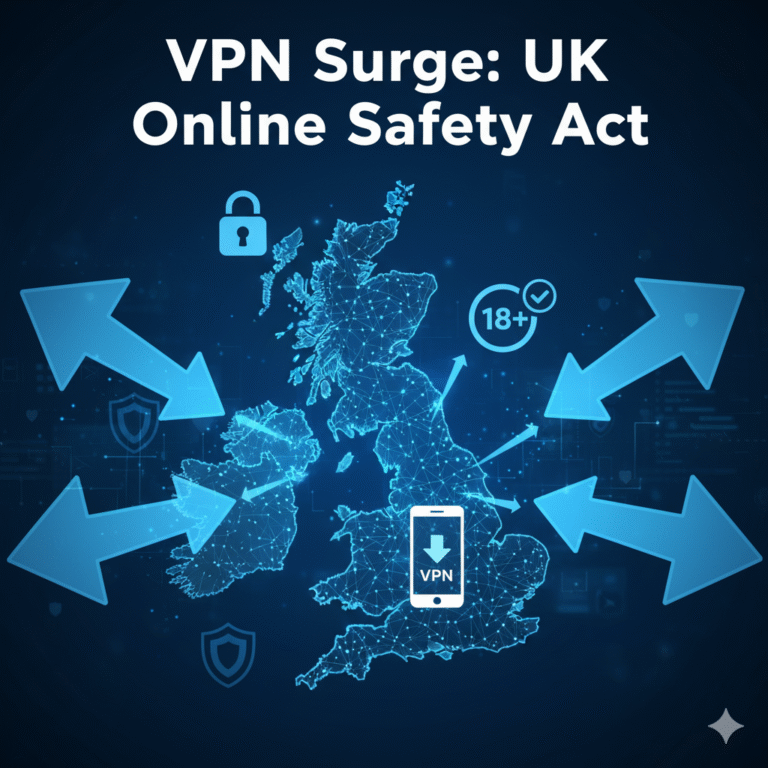In 2025, the world is witnessing a major shift in how people access the internet—and how they protect themselves while doing so (Global VPN). According to multiple industry reports, an estimated 1.7 to 1.8 billion people globally are now using a virtual private network (VPN), representing roughly one-third of all internet users.
This surge in VPN adoption is driven by a mix of privacy concerns, remote work trends, streaming and geo-access needs, and heightened awareness of internet security risks. As VPNs grow from niche tools into mainstream utilities, their role in the digital ecosystem is evolving — and so are the questions around service quality, trustworthiness and regulation.
What the numbers tell us
Several recent studies offer converging estimates:
The provider Surfshark reports that “over 1.75 billion people use VPNs — about one-third of all internet users worldwide.”
Another analysis from DemandSage lists “over 1.75 billion people worldwide use VPNs” and that translates to approx 31% of the global internet population.
Market research firm PureVPN cites over 1.5 billion users (31% of internet users) in 2025.
Put together, these numbers signal that VPNs have crossed the threshold from “privacy tool for a few” to “common utility for many.”
It’s worth noting the adoption isn’t uniformly distributed — regions such as Asia-Pacific and the Middle East show higher rates, while some Western and African markets lag behind. (–)
Also, the share of users turning on their VPN regularly (daily/weekly) is rising; for mobile users, roughly 30% use VPNs every day or almost every day.
Why VPN usage is surging
Several key factors are driving this growth trend:
Remote and hybrid work becoming normal
With rock-solid remote work now a fixture, both individuals and enterprises rely on VPNs for secure access to corporate networks, encrypted communication, and protecting sensitive data when working from cafés, co-working spaces or public WiFi.
Privacy awareness & data protection
High-profile data breaches, dragnet surveillance disclosures and rising concern about tracking have pushed more users to adopt VPNs as part of a broader “digital hygiene” practice. According to survey data, 60% of Americans who currently use a VPN say their primary reason is general privacy.
Streaming, geo-access & censorship workarounds
VPN usage is also fuelled by content access: streaming services, regional restrictions, and geo-blocks prompt users in various markets to adopt a VPN to bypass limitations. This effect is especially strong in Asia-Pacific and Middle Eastern markets. (–)
Mobile device proliferation
As smartphones dominate internet access especially in developing markets, VPNs optimized for mobile usage become essential when users connect via public WiFi or travel internationally. For example, Security.org reports : 32% of mobile-VPN users use their VPN “every day or almost every day.”
Regional comparison & insights
While global usage is about one-third of internet users, patterns vary significantly by region:
Asia-Pacific / Middle East: High adoption rates – e.g., some reports show countries such as Indonesia at ~55-61%, India at ~45%. (–)
North America: A more moderate rate – some sources show ~42% of U.S. internet users rely on VPNs.
Europe / Africa: Lower averages in many countries, sometimes single-digit percentages, reflecting different regulatory, infrastructure and user-awareness factors. (–)
These regional variations matter: they illustrate how market maturity, regulatory frameworks and local internet habits shape how and why VPNs are used.
What this means for users & providers
For individual users: If one in three global internet users now leverages a VPN, it’s a strong signal that using a VPN is no longer fringe — it’s increasingly mainstream. However, the fact that usage is widespread doesn’t mean all VPNs are equal: service quality, logging practices, jurisdiction, encryption and server integrity still matter.
For businesses & enterprises: As enterprise networks continue to adopt VPNs and remote tools, the sheer scale of adoption underscores the importance of carefully selecting and managing VPN infrastructure — beyond just “buy a VPN licence”.
For VPN providers: The growth curve creates both opportunity and pressure. With billions of users, providers must scale infrastructure, ensure performance, protect user trust, and navigate regulatory/legislative issues in multiple jurisdictions.
For regulators & policymakers: The diffusion of VPN usage touches on issues around digital sovereignty, censorship, privacy rights, and enforcement. As more users rely on VPNs, regulators may revisit frameworks around lawful access, network security and consumer protections.
Learn more than Free-VPN apps found with serious privacy & security flaws
Expert perspectives
Cybersecurity analysts highlight a key point: “VPNs are growing not just as access tools but as privacy utilities for the mass market.” One expert noted that while once VPNs were primarily corporate tools, today “the average consumer sees a VPN as a standard part of their digital toolbox—just as anti-virus or firewall used to be.”
Another vantage: some providers argue the challenge now isn’t getting users, but retaining users — ensuring the VPN delivers consistent speed, minimal leaks, strong trust metrics and meaningful privacy guarantees.
Conclusion
The fact that roughly 1.7 to 1.8 billion people worldwide use VPNs in 2025 marks a clear milestone. VPNs have soared from niche privacy tools into mainstream digital infrastructure used by one in every three internet users.
For anyone browsing, streaming, remote-working or simply caring about online privacy, that stat underscores an important truth: VPNs matter. But so do which VPN, how you use it, and why. With great scale comes great scrutiny—and users must remember: widespread adoption doesn’t guarantee universal quality. Choose wisely, stay informed, and use the tool with full understanding of its capabilities and limitations.



